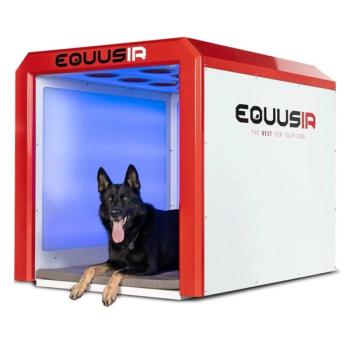
Antidepressant-related pet poisoning calls surge over 80%
Antidepressant as well as ADD/ADHD medications have caused a large increase in accidental exposure calls within the last few years
Pet Poison Helpline (PPH) announced that is has seen a jump in calls for accidental exposures to antidepressants and antianxiety medications. PPH shared that between 2019 and 2022, these types of calls rose 84.9% before falling just 3.2% in 2023. Along with the rise in the calls for accidental exposure to antidepressants, the team at PPH shared that there was also an 82.2% rise in calls involving ADD/ADHD mediations within the same time frame, with a 1% drop in 2023.
"The use of and public discussion around these types of medications has increased over the years, which has helped many people improve their quality of life," explained Renee Schmid, DVM, DABT, DABVT, a senior veterinary toxicologist and director of Veterinary Medicine at Pet Poison Helpline, in an organizational release.1
"In addition, according to a recent study, the rate of antidepressants dispensed to young people increased dramatically during the coronavirus pandemic. We believe that as a result of these and other factors, over the past 5 years Pet Poison Helpline has seen more than an 80% increase in calls involving antidepressant, antianxiety, ADD and ADHD medications," Schmid continued.1
When a pet ingests these medications, the clinical signs will depend on the amount ingested, category of antidepressant, weight of the dog, and a multitude of other facts such as how quickly treatment can be provided and other medications the pet is on. An early sign of antidepressant toxicity is gastrointestinal upset such as vomiting, diarrhea, or hypersalivation. Signs can also escalate to cardiac and neurologic signs such as involuntary muscle activity, change in mental status, and cardiac arrhythmias.2
According to the release, PPH used their Toxin Trends tool to analyze the call data involving accidental exposures to these medications in recognition of ADHD Awareness Month.1 Through the Toxin Trends tool, the team was also able to determine that the highest number of exposures calls for these medications came from Texas, followed by California and Florida.
PPH currently has plans to continue to release future iterations of its Toxin Trends dashboard to provide insights the company obtains through its database of emergency calls. By sharing its data, PPH hopes to educate the public on concerns common within their area to create a safer world for pets, and potentially save their lives.
"The increase in calls involving antidepressants illustrates the danger of pets having access to their human companion's medication," Schmid concluded.1 "Although we're focusing on pets who have had an accidental exposure, children and other vulnerable people could be harmed if they had an accidental or overexposure to these medications. Keeping track of all medications and storing them out of reach of pets and unintended people will help to keep the entire household safe."
References
- Pet Poisoning Calls Involving Antidepressants Increase Over 80%. News release. Pet Poison Helpline. October 1, 2024. Accessed October 1, 2024.
https://prnmedia.prnewswire.com/news-releases/pet-poisoning-calls-involving-antidepressants-increase-over-80-302262888.html - Myers A. Antidepressant Toxicity in Dogs. Petmd. September 29, 2022. Accessed October 1, 2024. https://www.petmd.com/dog/poisoning/antidepressant-toxicity-dogs
Newsletter
From exam room tips to practice management insights, get trusted veterinary news delivered straight to your inbox—subscribe to dvm360.





